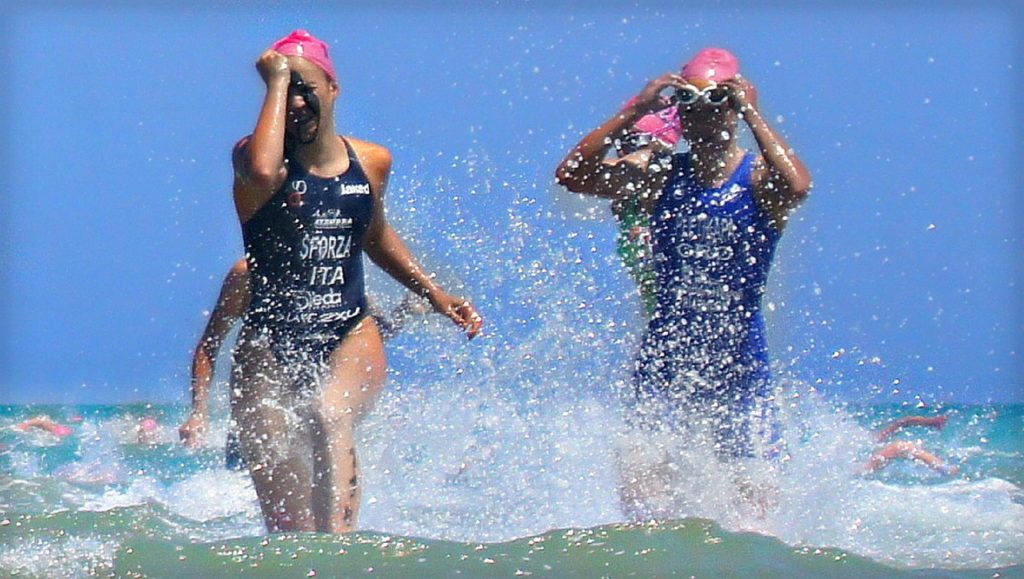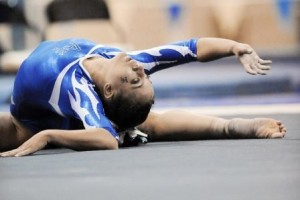- Calls to this hotline are currently being directed to Within Health or Eating Disorder Solutions
- Representatives are standing by 24/7 to help answer your questions
- All calls are confidential and HIPAA compliant
- There is no obligation or cost to call
- Eating Disorder Hope does not receive any commissions or fees dependent upon which provider you select
- Additional treatment providers are located on our directory or samhsa.gov
Elite Athletes & Eating Disorder Recovery – 5 Tips for Teammates and Coaches

For elite athletes with eating disorders, the demands of competition are often compounded by expectations to be thinner, faster, stronger, or just generally in peak physical form for their sport. A message is sent to many athletes that this idealized body and weight (often inaccurately viewed as essential to top performance) is to be achieved at any cost.
But many athletes, especially those who are at increased risk for eating disorders, discover that the cost is much too high. After all, eating disorders have the highest mortality rate of any mental illness and are associated with a wide range of medical problems that could temporarily or permanently take someone out of the game.
For a variety of reasons, athletes are up to three times more likely than their non-athlete peers to develop an eating disorder [1]. Among elite athletes, that risk may be even higher [2].
That said, it is essential that athletes of any age who are struggling with anorexia, bulimia, or binge eating disorder receive specialized, evidence-based treatment from therapists and physicians familiar with the culture of competitive sports.
Even with an expert treatment team, recovery for elite athletes with eating disorders will be challenging. Having a strong support system can help. For athletes, this support system often includes their families, teammates, coaches, or trainers.
Unfortunately, if a team is unsupportive or uninformed about eating disorders, it can complicate recovery. On the other hand, a positive, pro-recovery team environment can be an incredible asset to the athlete in recovery.
Are you part of a sport or team environment? Do you have teammates who are working on recovery during the season?
Here are five ways you can help provide a positive recovery environment on and off the field.
Five Tips for Elite Athletes With Eating Disorders
1. Advocate for education & open communication about mental health
It’s imperative that coaches and players know the signs and symptoms of common mental health issues, including eating disorders. Have open and comfortable discussions about these topics to reduce stigma within the team environment.
Too often, issues of emotional wellness are not discussed in sports, which makes it difficult for athletes to ask for help when they’re struggling. Mental health issues should be treated similarly to physical injuries on teams.
If you saw a teammate struggling on the field, you would step up and support them; this situation should be no different. When you have the knowledge, you can notice the signs that your teammate is struggling and offer your help as needed.
Offer to walk your teammate to the sports medicine department or reach out to a coach or team doctor if you are worried.
2. Make “team meals” about the team, not the meal
There is nothing better for many athletes than sitting around a table with your team joking around, bonding and enjoying a delicious meal the night before a big competition. But not everyone looks forward to this ritual.

You can support your teammate by keeping the conversation light and positive and by refraining from overanalyzing the food itself or individual food choices.
In general, conversations that focus on calories or diets are not helpful and could be potentially triggering, but especially during a team meal.
Bottom line? Fuel your body. Enjoy your food. Enjoy the company around you even more. Being surrounded by happy teammates eating nourishing meals (without guilt, regret, or body shame) can make a huge difference between a successful meal and a distressing meal for someone with an eating disorder.
3. Limit weight and body-related comments
Discussions about weight and appearance, even when self-directed or when intended to be complementary, can totally derail someone with an eating disorder or anyone struggling with negative body image.
Did you know that criticizing your own body or expressing dissatisfaction about your weight or appearance can start a flood of negative body image thoughts in the people around you?
That said, changing our language is not only healthy for our own well-being but can be healthy for the whole team! Knowing that a teammate is working towards recovery from an eating disorder can help you to be even more mindful of how you speak about your own body and your approach to eating and exercise.
Speak up or change the conversation if you hear someone making an insensitive comment about their own or another person’s body. Make it a team expectation that body-shaming gets shut down and will not be tolerated.
4. Support Identity building activities beyond the sport
Elite athletes must devote a majority of their time to their sport and have likely been involved in this sport for much of their lives. When someone has an eating disorder, the illness also takes up a significant amount of time and energy.
The sport and the eating disorder might be woven together in complex ways with who the person feels that they are.
During the recovery process, the athlete will be encouraged by therapists to explore other aspects of their identity. You can help by encouraging them to pursue new activities such as writing, gardening, or volunteering.
You could also accompany them on non-sport outings such as going to the movies, shopping, camping, or visiting a museum. Supporting them in these identity-building efforts helps them to be a well-balanced athlete and can provide teammates a way to bond off the court too, which is always a good thing.
5. Don’t forget that social media sends a loud message
Social media has become an integral part of our lives with new platforms popping up every day. It allows us to express ourselves and share pictures and experiences that make us proud, but social media can also have unintended harmful consequences, many of which impact self-esteem, body image, and social connection.

For example, if pictures of people are frequently filtered or edited, it sends a message that appearance is valued over performance, hard work, or positive attitude.
For team pages, using filters or apps to make alterations on faces or bodies can perpetuate false ideas about what an athlete’s body needs to look like. Instead of using filters, use your social media to keep it all the way real.
Be proud of your athletic body and what it allows you to do but be careful not to equate what your body looks like with your athletic accomplishments.
For people with eating disorders, social media can feel like a lot of food rules, workout pressure, diet-pushing, and body comparisons. If you know someone on the team is struggling with an eating disorder, be wary of posting details about specific diets, appearance-focused workouts or encouraging body comparison.
Instead, use your social media to spread a positive message, highlight the team’s travel adventures, good sportsmanship, or shine a light on what makes each person a unique and positive part of the team.
References:
[1 ] Martinsen M., Sundgot-Borgen, J. Higher prevalence of eating disorders among adolescent elite athletes than controls. Medicine & Science in Sports & Exercise. 2013; 45(6):1188–1197. [2] Smolak L, Murnen SK, Ruble AE. Female athletes and eating problems: A meta-analysis. Int J Eat Disord. 2000; 27:371–380.About the Author:
Amy Gooding, Psy.D. is a clinical psychologist at The Center for Eating Disorders in Towson, Maryland. In addition to providing evidence-based psychotherapy to adolescents and adults, she offers specialized treatment for athletes within the program. Dr. Gooding has extensive training in cognitive-behavioral therapy and its application to eating disturbances and the psychology of sports. Her experience in these areas helped focus her career on the management of the unique needs of athletes with eating disorders.
The opinions and views of our guest contributors are shared to provide a broad perspective of eating disorders. These are not necessarily the views of Eating Disorder Hope, but an effort to offer a discussion of various issues by different concerned individuals.
We at Eating Disorder Hope understand that eating disorders result from a combination of environmental and genetic factors. If you or a loved one are suffering from an eating disorder, please know that there is hope for you, and seek immediate professional help.
Reviewed & Approved on September 12, 2019, by Jacquelyn Ekern MS, LPC
Published September 12, 2019, on EatingDisorderHope.com

